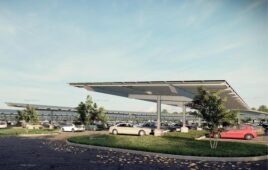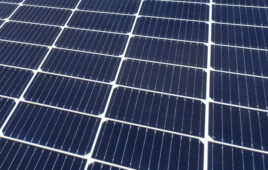Maryland Governor Larry Hogan signed HB683, extending the states community solar pilot program, and continuing access to clean and affordable solar energy for all Marylanders.
HB683 modifies existing legislation to allow Maryland’s community solar market to remain open through 2022 while the state’s Public Service Commission determines a long-term path forward for the program. The legislation also expands the generating capacity per system and lifts the maximum number of subscribers per project as previously imposed.
“We would like to sincerely thank Delegate Luke Clippinger and Senator Ben Kramer for their leadership and commitment to continue community solar in Maryland,” said Jeff Cramer, executive director for the Coalition for Community Solar Access (CCSA). “HB683 will allow Maryland residents and businesses access to the myriad of benefits community solar offers. We look forward to working with the PSC to help craft a long-term and sustainable future for community solar in Maryland beyond 2022.”
“By extending this initiative, Maryland is showing the nation that a clean energy future can benefit every community. Other states can and should follow Maryland’s lead,” said Jessica Ennis, legislative director for climate and energy for Earth Justice. “We applaud Delegate Clippinger and Senator Kramer for their leadership to extend the community solar pilot and allow more Marylanders to choose clean energy.”
“HB683 is a step in the right direction to expand access to the benefits of solar energy for our residents,” said Benjamin Kramer, member of the Maryland State Senate, representing district 19. “Passage of this bill is the commonsense next step Maryland needs to take in order to truly open up the renewable energy market.”
“Community solar will enable all Marylanders, no matter their income level or housing situation, to have access to solar energy,” said Delegate Luke Clippinger, Chair of the Judiciary Committee. “We’re able to get one step closer to making community solar a reality for the people of Maryland and that’s something we can tip our hats to. I want to thank the supporters, advocates, and my fellow legislators for making HB683 a priority this year.”
Community solar has become the fastest growing segment of the solar market with over 1 GW of installed capacity, enough to power about 140,000 households. Today, 19 states and the District of Columbia allow community solar programs, creating thousands of jobs and spurring local economic investments in those states.
News item from the Coalition for Community Solar Access





Tell Us What You Think!